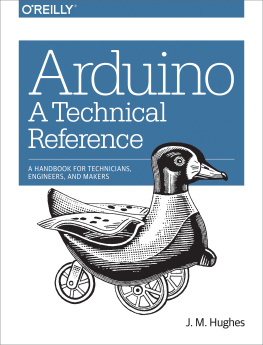Shugar Gershon J. - Chemical technicians’ ready reference handbook
Here you can read online Shugar Gershon J. - Chemical technicians’ ready reference handbook full text of the book (entire story) in english for free. Download pdf and epub, get meaning, cover and reviews about this ebook. City: New York, year: 2012, publisher: McGraw-Hill, genre: Home and family. Description of the work, (preface) as well as reviews are available. Best literature library LitArk.com created for fans of good reading and offers a wide selection of genres:
Romance novel
Science fiction
Adventure
Detective
Science
History
Home and family
Prose
Art
Politics
Computer
Non-fiction
Religion
Business
Children
Humor
Choose a favorite category and find really read worthwhile books. Enjoy immersion in the world of imagination, feel the emotions of the characters or learn something new for yourself, make an fascinating discovery.

- Book:Chemical technicians’ ready reference handbook
- Author:
- Publisher:McGraw-Hill
- Genre:
- Year:2012
- City:New York
- Rating:4 / 5
- Favourites:Add to favourites
- Your mark:
- 80
- 1
- 2
- 3
- 4
- 5
Chemical technicians’ ready reference handbook: summary, description and annotation
We offer to read an annotation, description, summary or preface (depends on what the author of the book "Chemical technicians’ ready reference handbook" wrote himself). If you haven't found the necessary information about the book — write in the comments, we will try to find it.
Chemical technicians’ ready reference handbook — read online for free the complete book (whole text) full work
Below is the text of the book, divided by pages. System saving the place of the last page read, allows you to conveniently read the book "Chemical technicians’ ready reference handbook" online for free, without having to search again every time where you left off. Put a bookmark, and you can go to the page where you finished reading at any time.
Font size:
Interval:
Bookmark:
CHEMICAL PROCESS INDUSTRY WORKERS AND GOVERNMENT REGULATIONS
The occupation of chemical process industry worker is difficult to define because the formal training, experience, and duties vary from company to company and region to region. Many countries have now developed occupational skill standards for most of these occupations, including chemical process operations employees and chemical laboratory technicians. The American Chemical Society, the U.S. Department of Labor, and the U.S. Department of Education have worked jointly with the U.S. chemical process industry (CPI) to develop Voluntary Industry Skill Standards for CPI Technical Workers.
The U.S. Department of Labor studies show that nearly 750,000 CPI workers are employed by U.S. companies, government agencies, and other organizations. This number could exceed 5 million workers if one considers chemical-related employees throughout the world. According to the American Chemical Society, there are approximately 500,000 chemical plant operators and 240,000 chemical laboratory technicians currently employed in the United States. This group makes up the fourth largest U.S. manufacturing industry and it should be noted that these data do not include other chemical-related occupations (science technicians, clinical technicians, forensic technicians, waste water operators, etc.).
Six critical job functions specifically for process operators (POs) have been identified in the skill standards study and are presented in part in . These critical job functions, tasks, and technical workplace standards are published in detail in the American Chemical Societys Foundations for Excellence in the Chemical Process Industries.
TABLE 1.1 Critical Job Functions for Chemical Process Operators
A . Working in the chemical process industries. B . Maintaining safety/health and environmental standards in the plant. C . Handling, storing, and transporting chemical materials. D . Operating, monitoring, and controlling continuous and batch processes. E . Providing routine and preventative maintenance and service to processes, equipment, and instrumentation. F . Analyzing plant materials. |
(With permission from the American Chemical Societys Foundations for Excellence in the Chemical Process Industries.)
The following core and recommended competencies have been identified for process operators:
Understand the importance of teamwork.
Recognize that all members of a team have opinions that must be valued.
Demonstrate skills in problem solving.
Demonstrate responsibility for fellow workers health and safety.
Demonstrate critical thinking.
Successfully coordinate several tasks simultaneously.
Make decisions based on data and observations.
Pay close attention to details and observe trends.
Demonstrate high ethical standards in all aspects of work.
Apply total quality management (TQM) principles to all aspects of work.
Safety, health, and environmental (S/H/E) protection must be a continuous, high-level concern to every technical worker in the chemical processing industry. Process operators working in this industry may handle hazardous materials and operate potentially dangerous equipment as a major part of their work. Improper handling can have serious effects on the environment, the PO, other individuals, and the physical facility. Process operators must be aware that compliance with safety, health, and environmental standards is the most important part of their work. Regulations specific to the CPI have been developed at the federal, state, and local levels. In addition, industry groups and individual companies have developed procedures to ensure the safety and health of employees, consumers, and the environment.
Regulations require continuous monitoring and extensive record keeping that address the environmental impact of chemicals, the processes used to make them, and their storage and disposal. Process operators are the employees who have the most direct contact with, and control of, the chemicals and related products. They must accept responsibility for ensuring that S/H/E considerations are addressed appropriately.
Process operators must be able to implement the regulations pertaining to the industry and to the processes in which they work. Knowing the regulations is not sufficientthe PO must also understand the reasons for them and the consequences of not adhering to them. Furthermore, Pos must have significant knowledge about the materials and equipment they handle and the processes they control.
Tasks conducted by process operators related to this critical job function include:
Accessing procedures, files, and other documentation for S/H/E guidelines before starting any job and responding appropriately.
Inspecting all areas for hazards.
Providing input to coworkers about unsafe conditions.
Complying with regulatory standards, including procedures for red tag lockout, safe handling of all chemicals, and implementing confined-space entry procedures, among others.
Investigating accidents and incidents as part of process safety management.
Working closely with safety and regulatory contacts; participating in S/H/E audits.
Reporting any hazardous conditions that may affect the safety and health of self or coworkers and those that could have a negative impact on the environment.
Properly labeling all materials in the plant.
Participating in public awareness activities.
Participating in and conducting safety response drills.
Verifying the completeness of appropriate paperwork.
Participating in audits and safety reviews.
Process operators working in the chemical processing industry are expected to handle, store, and transport chemical materials within the plant and are expected to arrange for transportation to and from the plant. To perform these jobs effectively and safely, POs must be familiar with chemical and physical properties of the materials they handle and with the regulations governing the safe use, storage, and handling of the materials.
Many workplace chemicals are considered hazardous materials and must be handled with respect, which requires knowledge and understanding of properties of the materials. The physical and chemical characteristics of the material being stored must be compatible with specifications for storage containers and vessels ranging from laboratory glassware to tank storage facilities.
Tasks conducted by process operators related to this critical job function include:
Receiving, verifying, and identifying materials and products from ships, trucks, railroads, and other carriers.
Completing the proper paperwork associated with receiving materials.
Unloading, or arranging for someone to unload, materials and products from ships, trucks, railroads, and other carriers.
Transferring, or arranging to transfer, materials to storage or processing unit.
Properly labeling all materials.
Ensuring that materials meet specifications by measuring specified properties.
Maintaining material inventories.
Maintaining storage facilities.
Inspecting drums, barrels, and containers for proper use and storage.
Cleaning, decontaminating, and disposing of storage drums, barrels, and containers in an appropriate manner.
Font size:
Interval:
Bookmark:
Similar books «Chemical technicians’ ready reference handbook»
Look at similar books to Chemical technicians’ ready reference handbook. We have selected literature similar in name and meaning in the hope of providing readers with more options to find new, interesting, not yet read works.
Discussion, reviews of the book Chemical technicians’ ready reference handbook and just readers' own opinions. Leave your comments, write what you think about the work, its meaning or the main characters. Specify what exactly you liked and what you didn't like, and why you think so.







